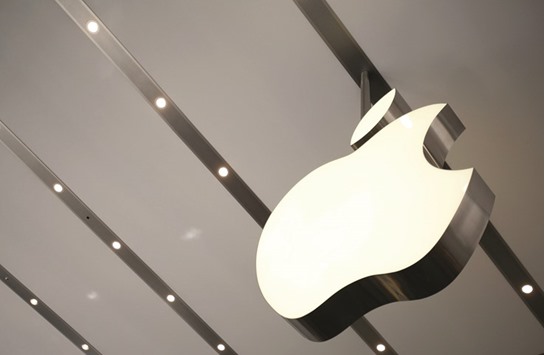Apple is planning sweeping changes to its year-old music streaming service after the first iteration of the product was met with tepid reviews and several executives brought in to revive the company’s music strategy departed.
Apple is altering the user interface of Apple Music to make it more intuitive to use, according to people familiar with the product who asked not to be identified because the plans aren’t public. Apple also plans to better integrate its streaming and download businesses and expand its online radio service, the people said.
The reboot is expected to be unveiled at the company’s Worldwide Developers Conference in June. The changes will be accompanied by a marketing blitz to lure more customers to the $10-per-month streaming service. An Apple spokesman declined to comment.
As iTunes sales stagnate and rival Spotify continues to draw in new subscribers, Apple is attempting to reclaim its dominance in music. It acquired Beats Music two years ago in part to rethink its approach to the music business by blending its technological expertise with the entertainment industry experience of Beats executives.
But the combination hasn’t yet fulfilled its potential. The deal sparked a rare culture clash within Apple that led to the departure of several key managers and, most important, created a product that many critics say doesn’t meet Apple’s own lofty standards. Apple is still struggling to integrate its employees and unite the streaming and downloading businesses into a cohesive music strategy, said the people.
Chief Executive Officer Tim Cook is banking on services like Apple Music to reignite growth as the company’s stock plunges on concerns about slowing iPhone sales. Many analysts argue one of the biggest threats facing Apple’s business is an inability to develop strong Internet-based tools to go along with its beautifully designed hardware. Other services such as iCloud, Maps, Photos and Siri also have faced criticism for being inferior to competitors.
“When it comes to software, Apple performs with less elegance than it does when it comes to hardware,” said a New York-based BGC Partners analyst. “Apple Music is underwhelming. They have subscribers because of their platform. If you have that kind of subscriber base, you should have millions of subscribers.” Apple dominated the transition from physical to digital music. But when Beats was acquired, iTunes was in decline. To Iovine and other Beats executives, the remedy was obvious: the company should deemphasise iTunes and plow money into the on-demand streaming service that Beats built.
Apple executives agreed with the plan, calling off development of some products in favour of the new streaming service. Following the Beats acquisition in 2014, Apple scrapped the international rollout of iTunes Radio just a few hours before an event where it would have been announced. Employees who had been working on the project for more than a year were told it would be rolled into a new streaming service based on Beats.
But once Apple Music was released last June, the response was mixed. Reviewers praised the depth of the music catalogue, but criticised its confusing interface. “The app’s design is cluttered with too much information and difficult to navigate,” wrote CNET.
Apple has been reluctant to promote the streaming service to customers who make purchases a la carte, not wanting to undermine its profitable download business.
The download store gives Apple an advantage when artists such as Adele refuse to make new music available through streaming services. But that can frustrate customers who spend $10 a month to have unlimited access to Apple’s streaming music library. Even after the introduction of Apple Music, revenue from album and song purchases from the iTunes Store have remained steady at nearly $3.5bn, according to two people familiar with finances. That’s almost three times the revenue generated from streaming subscriptions.
Iovine, the longtime producer and music industry insider, has become the biggest champion for streaming at Apple, pushing executives such as Cue, who oversees all of Apple’s Internet services, to invest more. While Iovine holds no official title – he’s just “Jimmy” in Cupertino – he’s tasked with the music product’s success.

Apple is planning sweeping changes to its year-old music streaming service after the first iteration of the product was met with tepid reviews and several executives brought in to revive the company’s music strategy departed
